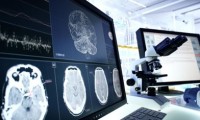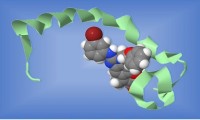-
FDA Approves Roche’s Cobas Malaria Test, Designed to Screen for Malaria in Potential Blood Donors
- Source: drugdu
- 142
- March 29, 2024
-
Simple Skin Biopsy Test Detects Parkinson’s and Related Neurodegenerative Diseases
- Source: drugdu
- 134
- March 29, 2024
-
New Genomic Method Helps Diagnose Patients with Unexplained Kidney Disease
- Source: drugdu
- 87
- March 28, 2024
-
Fluid Biomarker Test Detects Neurodegenerative Diseases Before Symptoms Appear
- Source: drugdu
- 88
- March 28, 2024
-
Another Chiatai Tianqing’s contrast agent, iopromide injection, was approved for marketing
- Source: drugdu
- 142
- March 28, 2024
-
Coin-Sized Device Rapidly Isolates Blood Plasma for Quicker and More Precise Clinical Diagnoses
- Source: drugdu
- 147
- March 26, 2024
-
Precision Medicine Startup Mirador Unveils $400M for R&D of New I&I Drugs
- Source: drugdu
- 117
- March 25, 2024
-
Groundbreaking pTau217 Blood Test as Accurate as Brain Imaging or CSF Testing in Diagnosing Alzheimer’s
- Source: drugdu
- 154
- March 23, 2024
-
AI Predicts Cancer Spreading To Brain from Lung Biopsy Images
- Source: drugdu
- 107
- March 23, 2024
-
Cells Harvested From Urine to Enable Earlier Kidney Disease Detection
- Source: drugdu
- 105
- March 22, 2024
your submission has already been received.
OK
Subscribe
Please enter a valid Email address!
Submit
The most relevant industry news & insight will be sent to you every two weeks.













